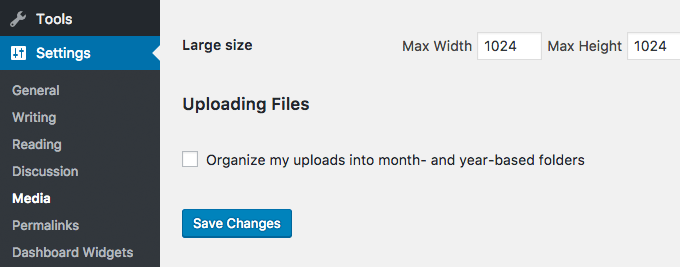Typically malicious scans use some sort of encoding to obscure their payloads. For example, instead of injecting a literal script, the attacker will run it through a PHP encoding function such as base64_encode(), utf8_encode(), or urlencode(). So if and when you need to decode some discovered payload, you can use whichever decoding function will do the job. For example, base64_decode(), utf8_decode(), or urldecode(). Sounds straightforward, but let’s dig a little deeper.. Continue reading »
![[ WordPress .htaccess file ]](https://perishablepress.com/wp/wp-content/images/2017/wordpress-htaccess.jpg)
The WordPress core uses .htaccess for two things: Permalinks and Multisite. This means that .htaccess is only required if you have enabled either of these features. Otherwise, .htaccess is entirely optional for default WordPress installations. Beyond the WP core, many plugins also use the .htaccess file for custom directives involving rewrites, redirects, custom headers, file compression, and much more. In many cases, such plugins add their .htaccess rules to your .htaccess file automatically, behind the scenes. Continue reading »
Once again I am cleaning up my sites’ .htaccess files. I do this from time to time to remove old redirects, refresh blacklists, and update security and SEO-related directives. It’s tedious work, but the performance and security benefits make it all worthwhile. This post shares some of the techniques that were added, removed, or replaced from .htaccess, and explains the reasoning behind each decision. I do this for the sake of reference, and hopefully it will give you some ideas […] Continue reading »

In this tutorial, I’m going to walk you through how you can add a new menu in WordPress Admin Area, where your users will be able to import any demo content — including widgets, their positions and navigation as well — by a single click. The code follows the best WordPress practices, uses WP Filesystem for file management, includes escaping and all text strings are prepared for translation. It also passes the WordPress theme check plugin! Continue reading »
![[ Perishable Press : Stop WordPress from modifying .htaccess ]](https://perishablepress.com/wp/wp-content/images/2019/wordpress-htaccess.jpg)
By default, depending on file permissions, WordPress automatically will modify the contents of your site’s .htaccess file. It does this on several occasions, adding and/or updating the rewrite rules required for WP’s permalink functionality. This post explains how this works, why it can be dangerous, and how to stop it from happening. Continue reading »
![[User Enumeration ]](https://perishablepress.com/wp/wp-content/images/2016/user-enumeration.jpg)
This tutorial explains how to block user-enumeration scans in WordPress. As explained in greater depth here, user enumeration happens when some malicious script scans a WordPress site for user data by requesting numerical user IDs. For example, requests for author=1 through some number, say, author=1000, may reveal the usernames for all associated users. With a simple enumeration script, an attacker can scan your site and obtain a list of login names in a matter of seconds. Continue reading »
![[ RSSing.com Removal Request or Whatever ]](https://perishablepress.com/wp/wp-content/images/2016/rssing-com.jpg)
This quick post explains how to stop the notorious site scrapers, RSSing.com, from stealing your content. In fact, this technique can be used to stop virtually any site that uses HTML frames to scrape your pages. Once again, the solution is one line of .htaccess to the rescue. Continue reading »
![Two Bad [ Two Passwords = Two Bad ]](https://perishablepress.com/wp/wp-content/images/2016/he-man-two-bad.jpg)
Image courtesy of eChunks.com Here is a quick security tip for people using popular apps on the Web. That is, apps like WordPress that may be widely used and targeted by bad actors and/or automated scripts. It’s all about adding another layer of security by hardening admin-level usernames.. Every now and then, I get an email letting me know that someone has requested a password reset for one of my admin-level WordPress accounts. Usually, the email notifications are sent directly […] Continue reading »

Over the years, my sites have been hacked numerous times. Each hacking event was somewhat of a miserable experience at first, but ultimately educational and even enlightening. I’m not going to say that getting hacked was the best thing that ever happened to me, but it certainly wasn’t the end of the world. In this post, I want to share some important steps to take and things to keep in mind if and when you discover that your site has […] Continue reading »
I use s2member (free version) and s2member Pro on a few of my sites. Have been for several years now. Over the course of time, I have amassed a healthy collection of notes, code snippets and techniques for customizing default functionality, adding features, and so forth. Gonna post the collection online for the benefit of any others who may be seeking for similar modifications and/or related information. Continue reading »
One of the most annoying, persistent scans I’ve seen in a long time are those hunting for the revslider vulnerability. In the five or so months since the exploit was discovered, many sites have been compromised. And based on what I’ve been seeing in my traffic logs, the risk is far from over. Apparently every 2-bit script kiddie and their pet hamster wants a piece of the “revslider action”. Continue reading »
![[ Protect yourself ]](https://perishablepress.com/wp/wp-content/images/2014/gas-mask-dog.jpg)
Whether you like it or not, there are scripts and bots out there hammering away at your sites with endless HTTP “POST” requests. POST requests are sort of the opposite of GET requests. Instead of getting some resource or file from the server, data is being posted or sent to it. To illustrate, normal surfing around the Web involves your browser making series of GET requests for all the resources required for each web page. HTML, JavaScript, CSS, images, et […] Continue reading »
I woke up this morning to the sound of thousands of 404 requests hitting the server. It’s sad that there are kiddies out there who have nothing better to do than buy some pathetic $50 script and then sit there like an imbecile harassing people for hours on end. But alas, that is the world we live in — fortunately it’s less than trivial to block the entire scan with just a few lines of good old .htaccess. Continue reading »
![[ WP Plugin: Core Control ]](https://perishablepress.com/wp/wp-content/images/2014/core-control.gif)
Just a quick post with some tips for troubleshooting and testing HTTP requests. For example, if you have a plugin that sends requests behind the scenes via Ajax or cURL or whatever, it’s nice to have a way to view request details such as headers, the response, and everything in between. This article is aimed primarily at WordPress users, but contains more general tips and tricks as well. Continue reading »
Just as there are specifications for designing with CSS, HTML, and JavaScript, there are specifications for working with URIs/URLs. The Internet Engineering Task Force (IETF) clearly defines these specifications in RFC 3986: Uniform Resource Identifier (URI): Generic Syntax. Within that document, there are guidelines regarding which characters may be used safely within URIs. This post summarizes the information, and encourages developers to understand and implement accordingly. Continue reading »
![[ Screenshot: PHP Logo ]](https://perishablepress.com/wp/wp-content/images/2012/php-easter-eggs-02a.jpg)
A reader recently brought to my attention a reported vulnerability on servers running PHP. It’s been known about for eons, but it’s new to me and it involves easter eggs in PHP so I thought it would be fun to share a quick post about what it is and how to prevent leakage of sensitive information about your server. It only takes a moment to disable the easter-egg information, should you decide to do so. Continue reading »

![[ WordPress .htaccess file ]](https://perishablepress.com/wp/wp-content/images/2017/wordpress-htaccess.jpg)

![[ Perishable Press : Stop WordPress from modifying .htaccess ]](https://perishablepress.com/wp/wp-content/images/2019/wordpress-htaccess.jpg)
![[User Enumeration ]](https://perishablepress.com/wp/wp-content/images/2016/user-enumeration.jpg)
![[ RSSing.com Removal Request or Whatever ]](https://perishablepress.com/wp/wp-content/images/2016/rssing-com.jpg)
![Two Bad [ Two Passwords = Two Bad ]](https://perishablepress.com/wp/wp-content/images/2016/he-man-two-bad.jpg)

![[ Protect yourself ]](https://perishablepress.com/wp/wp-content/images/2014/gas-mask-dog.jpg)
![[ WP Plugin: Core Control ]](https://perishablepress.com/wp/wp-content/images/2014/core-control.gif)
![[ Screenshot: PHP Logo ]](https://perishablepress.com/wp/wp-content/images/2012/php-easter-eggs-02a.jpg)
